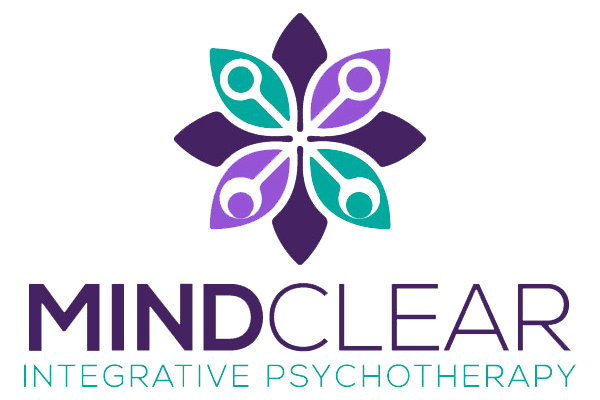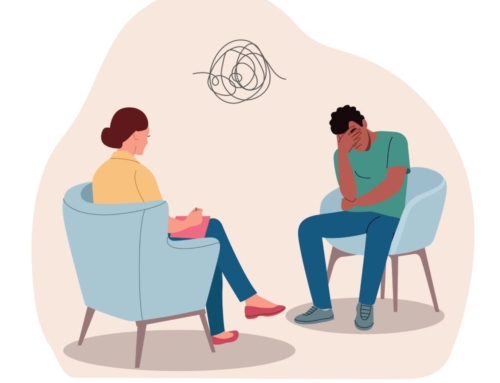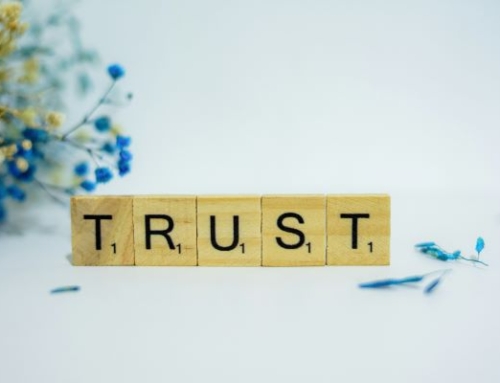Posttraumatic Growth in the New Year: Life After Trauma

Written by Anya Dangora, LP-MHC
With the new year comes a lot of talk about resolutions. The trendiness of initiating change in your life overnight can bring hope to some while others may feel pressured and inadequate. Self-care quickly becomes another thing on our to-do list. Change and growth are great, but for most they are not items easily checked off like a chore.
For those that have experienced trauma, even the most basic of self-care routines can seem far-fetched, trite, or even impossible. It can be difficult to feel good for a number of reasons: prioritizing oneself may feel wrong; it may be difficult to know where to start; or feeling well may be such a distant memory that you can’t even imagine it.
As much as it might be hard to believe, trauma doesn’t have to indefinitely threaten your well-being. There is a way through. And change is possible with or without resolutions and to-do lists.
Trauma Disrupts
During trauma, your bodily system is overwhelmed. Once the moment has passed, you may feel fragmented, disconnected, and alone. A number of questions rush to mind: Why did that happen? Why did I survive? Why me? How is this possible?
The answers to these questions may threaten your understanding of yourself and the world around you. You may find that you no longer identify with who you used to be. Your sense of control may have crumbled. The world is not what you thought it was. The old you may feel out of place in familiar places and with familiar faces. As a result, you can be left with immense feelings of isolation, detachment, and loneliness.
Know that this is a normal response to a most abnormal experience.
While trauma and its aftermath can be devastating and debilitating, there is another side; an after.
From the place of fragmentation, chaos, and confusion, an immense space is created. This space can be uncomfortable at best and harrowing at worst. But within this space, a wonderful opportunity for change exists.
Post-Traumatic Growth
In fact, the field of psychology now understands that trauma can be a vehicle for immense change, leading to something researchers call post-traumatic growth.
Most people do not like change. It threatens survival instincts. Even when really motivated to change, your brain and body are designed to resist it. How many times have you known exactly what you need to do, but found it so difficult to just do it?
Experiencing trauma is often so disruptive, many have no choice but to change. And this kind of deep change is only possible because of the disequilibrium that has occurred. All of a sudden, you are forced to change, and to grow, without having time to think about it.
Researchers coined the term post-traumatic growth to encompass the transformation that occurs after a traumatic event. While trauma can be debilitating and should not be wished upon anybody, healing and repair is still a possibility.
Consider Kintsugi – the Japanese art of repairing pottery with gold. The broken pieces are fortified and put back together again, different, but stronger than before. Similarly, the new you may look and feel a little or a lot different than the old you, and that’s okay. You may find that your personal or career interests, behaviors, spiritual beliefs, core values, future aspirations, and/or priorities have shifted. New ideas and interests are like the gold that can be used to bring yourself back together again.
Some examples of growth can include an increase in empathy and ability to relate to others, a stronger sense of self-efficacy (a person’s belief in their own abilities), a new life purpose, different worldview(s), greater resilience, increased creativity, and a greater appreciation for life and everything it has to offer. You might tap into reservoirs of strength that you would have never known had you not been forced to access it.
As a result, your future may look different. You may find yourself doing things that you didn’t find possible before. You may want different things altogether, and you now have the motivation and means to access them.
Transformation
This kind of radical transformation is no small feat. It requires the disintegration of your prior self, including salient aspects of your personality, thoughts, beliefs, and interests. This can be terrifying and feel endless. Unsurprisingly, many experience a period of heightened anxiety and depression after trauma.
Therapy is especially helpful during this time to both honor the difficulty of what you have experienced and aid in the shift toward growth. One of the ways therapy can help is by restoring a sense of safety, stability, and continuity- a small but important piece of the new normal. Secondly, therapy is a great place to ask questions and share thoughts that you may feel are too much for those already in your life.
A good therapist can help individuals challenge harmful narratives that no longer seem true or beneficial after the traumatic event. Therapy can help build insight, offer perspective, and help cultivate a more cohesive sense of self and understanding of the world that feels truer and healthier post-trauma. It’s a place where you can explore the answers to these profound questions, while simultaneously building tolerance for the unanswerable and unknowable.
Slowly, therapy can help one shift into the perspective that what has been done to them is also an opportunity for growth. When authentic and not forced, this growth-mindset opens the door to many possibilities, including getting closer to your authentic self.
This is not to say that trauma and its aftereffects are something to be celebrated. Rather, there is life beyond trauma.
Tragedies can spur positive change, and this kind of growth is natural. For many, a life beyond trauma can include a redefining of, and engagement in what is meaningful and fulfilling. If you are experiencing such changes, and find yourself feeling excitement, motivation, or joy after a traumatic event, try not to judge yourself. Let your life happen.
If you aren’t experiencing these changes, and you’re overwhelmed in the chaos, or you can’t fathom feeling purpose again, reach out for help. Humans have always been social creatures, and no one should have to heal on their own. Growth occurs in relationship with others.
So, during this time of reflection, remember to go easy. Wildfires may desolate the landscape to the naked eye, but on a microscopic level, the ash from the trees inundates the soil with nutrients. From the scorched earth, wildflowers are the first to grow, nourishing themselves from the debris left behind. Trauma often signifies the end of something or many things, but there is an after. In the after, we grow, because that is what we do.









